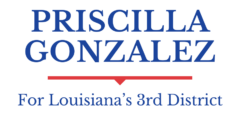The statistics paint a stark picture of the prevalence of crime in Lake Charles and its surrounding areas. With 36 out of every thousand residents reporting crime, it’s evident that this issue touches the lives of many individuals within the community. Moreover, when compared to other communities across the nation, Lake Charles stands out for its high crime rates, underscoring the severity of the situation.
The likelihood of becoming a victim of either violent or property crime stands at 1 in 27, highlighting the very real threat that residents face on a daily basis. This statistic isn’t just a number; it represents the potential for harm and loss that looms over the community. It’s a sobering reminder that safety isn’t guaranteed, and vigilance is essential.
Behind these statistics lies a troubling reality: many individuals have experienced the trauma of crime firsthand. Whether it’s a violent assault or a petty theft, these incidents leave a lasting impact on victims and their loved ones. They shatter feelings of security and trust, leaving individuals feeling vulnerable and exposed.
Addressing these issues requires a multifaceted approach, including robust law enforcement efforts, community engagement, and initiatives aimed at addressing root causes such as poverty and substance abuse. By working together, residents, officials, and organizations can strive towards creating a safer and more secure environment for everyone in Lake Charles and beyond.
The Solution:
As a congresswoman, there are several key actions I can take to contribute to lowering crime rates in your district:
- Advocate for Federal Funding: Use your position to advocate for increased federal funding for law enforcement agencies and crime prevention programs in your district. This could include grants for community policing initiatives, youth development programs, and victim support services.
- Legislation and Policy Advocacy: Introduce or support legislation aimed at addressing root causes of crime, such as poverty, unemployment, and lack of access to education and healthcare. Advocate for policies that promote economic opportunity, affordable housing, and mental health resources, which can help prevent individuals from turning to crime.
- Support Community Policing Initiatives: Work with local law enforcement agencies and community leaders to support and expand community policing initiatives. This could involve securing funding for training programs, technology upgrades, and community outreach efforts aimed at building trust and cooperation between police and residents.
- Promote Gun Violence Prevention: Support common-sense gun safety measures at the federal level, such as universal background checks, closing loopholes in the background check system, and funding for gun violence research. Advocate for policies that keep firearms out of the hands of individuals who pose a risk to themselves or others.
- Invest in Education and Youth Programs: Prioritize funding for education and youth development programs that provide positive alternatives to crime and help at-risk youth succeed. Support initiatives such as after-school programs, mentorship opportunities, and job training programs that empower young people and reduce their likelihood of engaging in criminal behavior.
- Address Substance Abuse and Mental Health: Advocate for increased access to substance abuse treatment and mental health services in your district. Support policies that prioritize treatment and rehabilitation over incarceration for individuals struggling with addiction or mental illness, and work to destigmatize seeking help for these issues.
- Community Engagement and Outreach: Act as a liaison between your constituents and local law enforcement agencies, facilitating communication and collaboration between the community and those responsible for public safety. Host town hall meetings, community forums, and neighborhood outreach events to hear directly from residents about their concerns and priorities related to crime and public safety.
- Data Analysis and Oversight: Work with relevant agencies and organizations to collect and analyze data on crime trends and patterns in your district. Use this information to inform policy decisions, allocate resources effectively, and measure the impact of crime prevention efforts over time.
As a congresswoman, I will collaborate closely with local law enforcement agencies and community organizations to gather and analyze data on crime trends and patterns. This data will inform our policy decisions and resource allocations, ensuring that we effectively address the most pressing issues facing our district. I will also prioritize ongoing oversight and evaluation of crime prevention efforts to measure their impact and make necessary adjustments as needed. Together, we will work tirelessly to achieve tangible reductions in crime rates and enhance the safety and well-being of all our constituents
